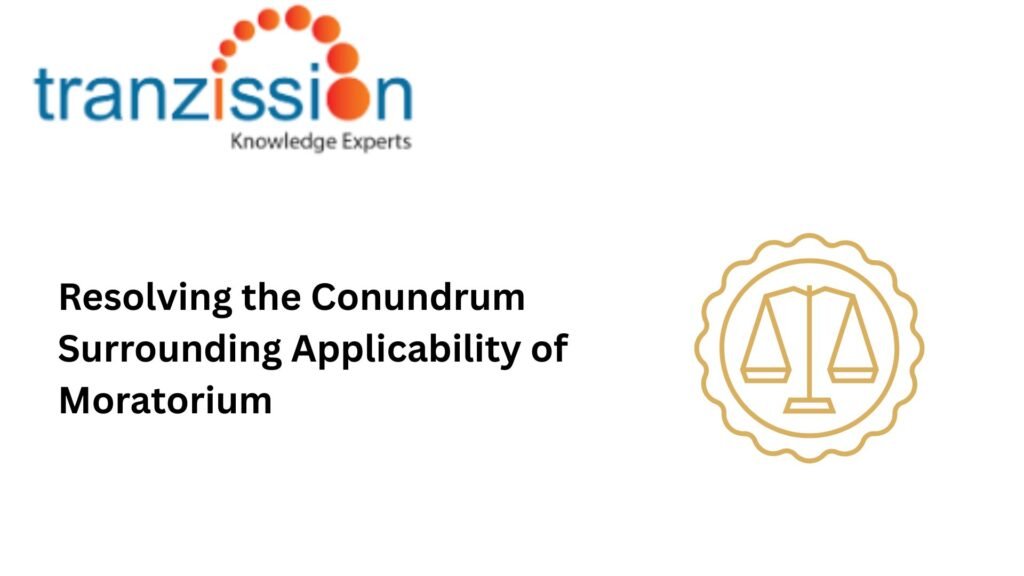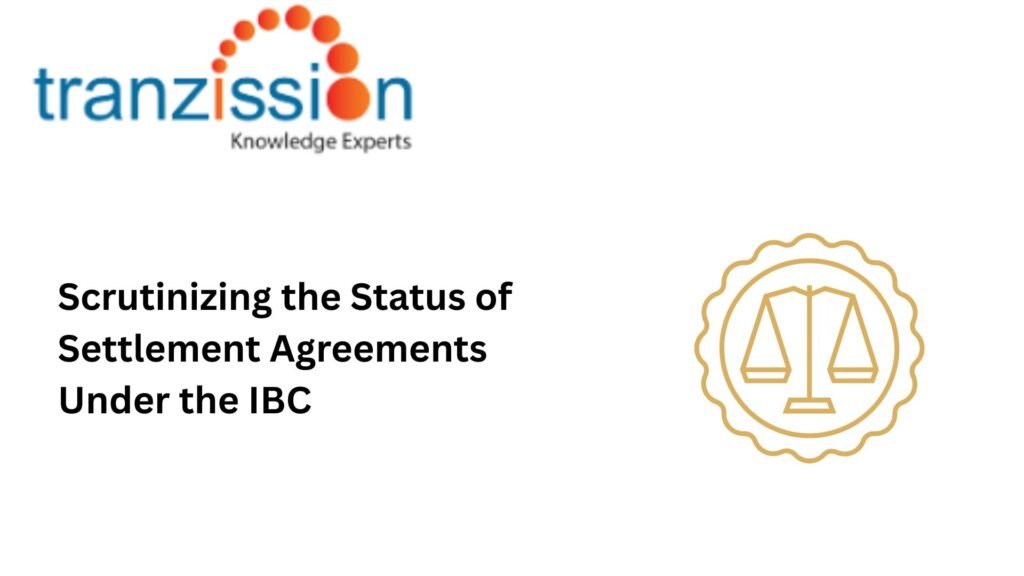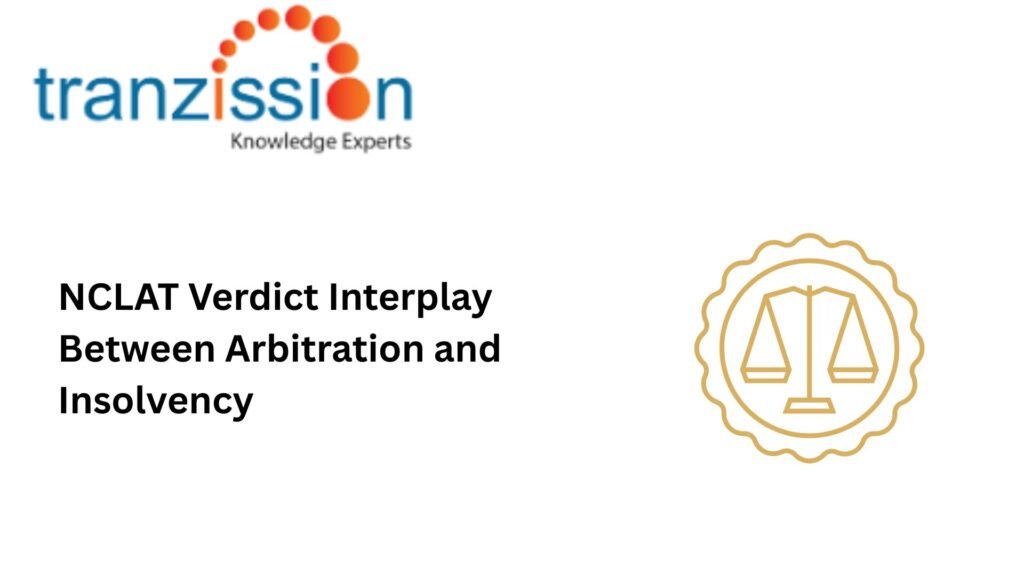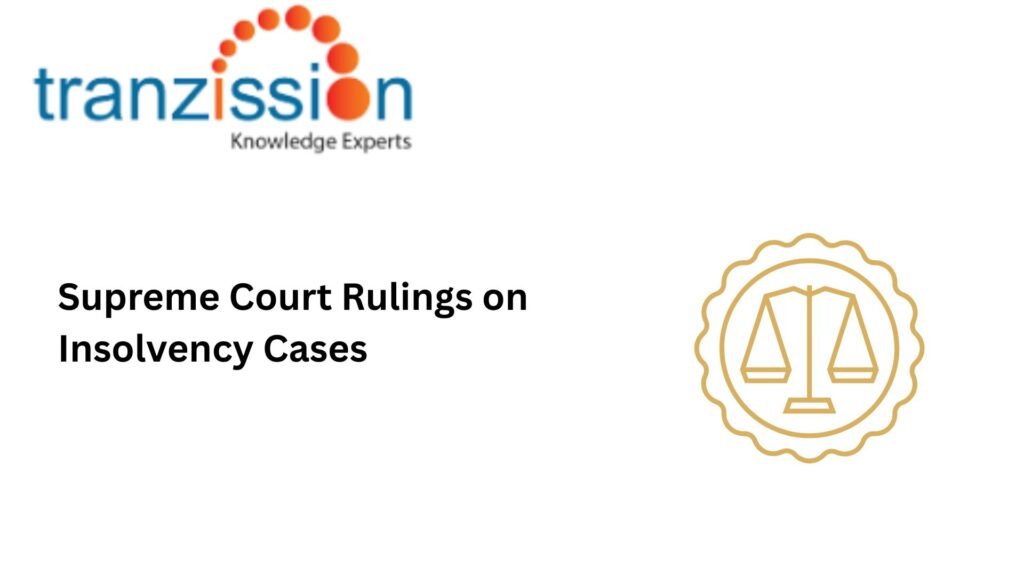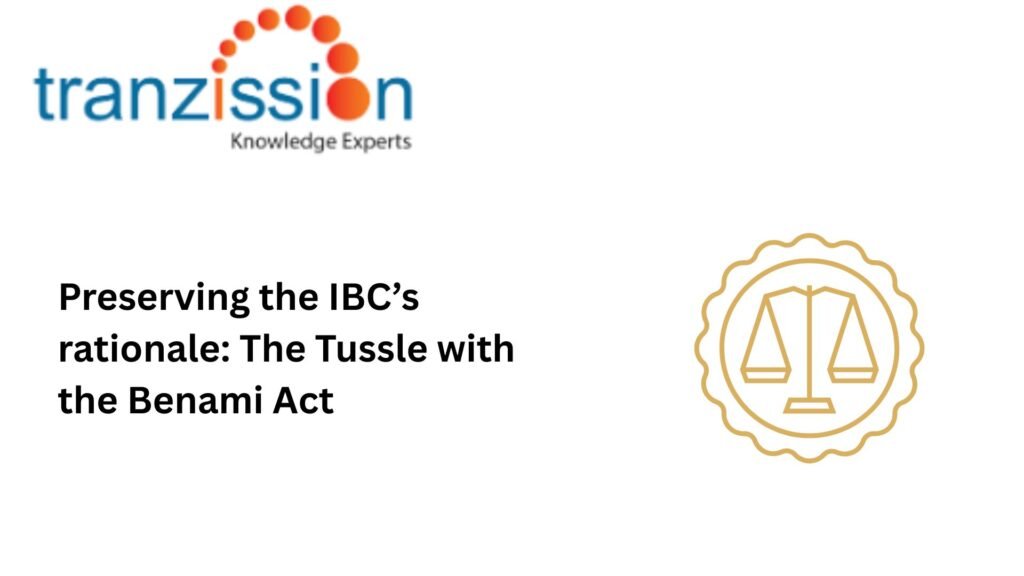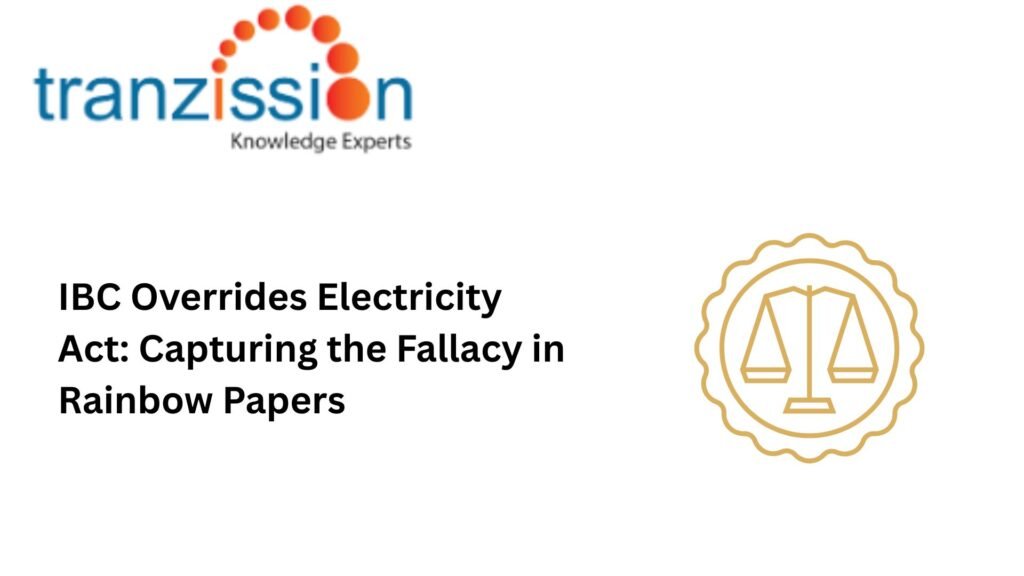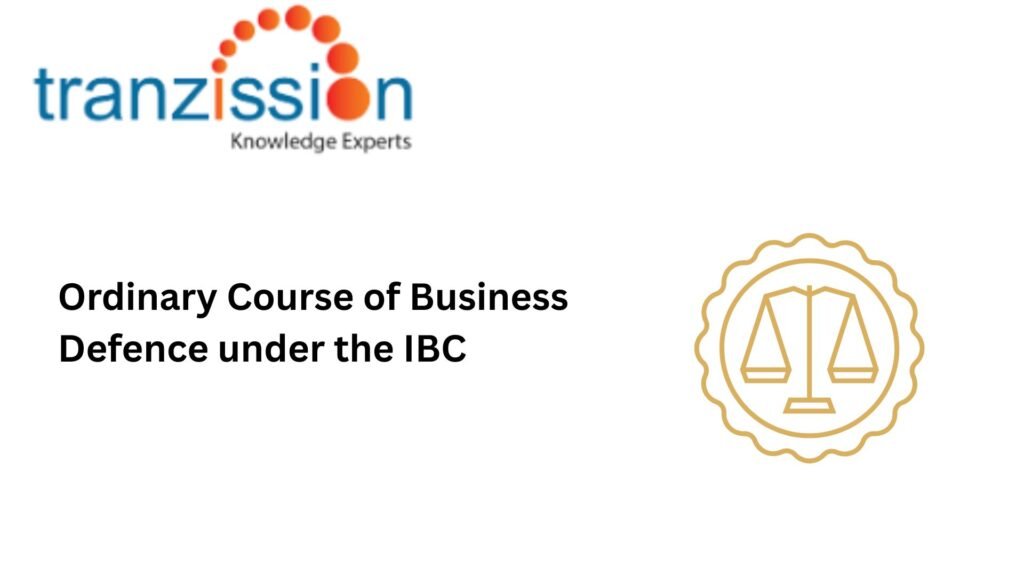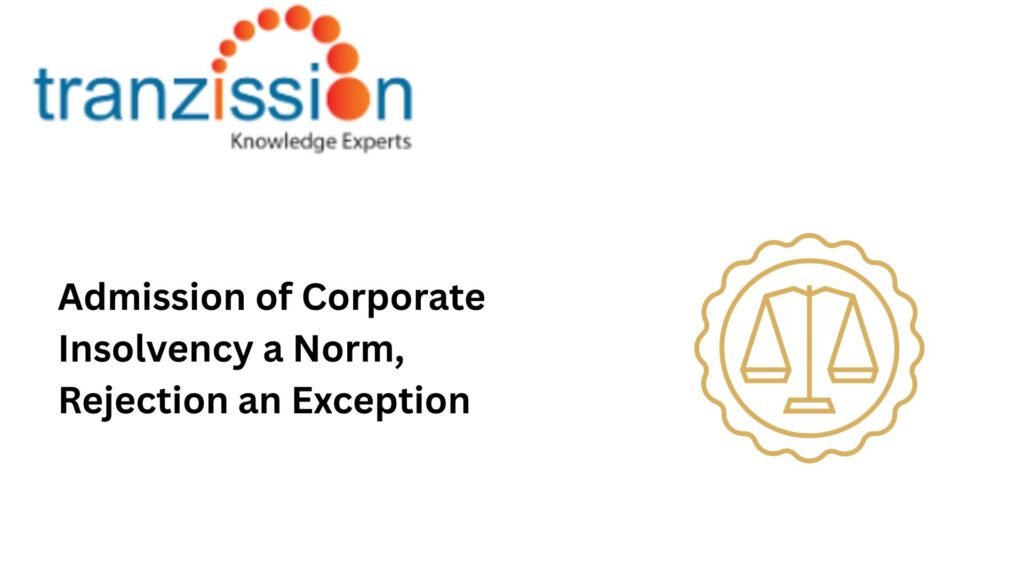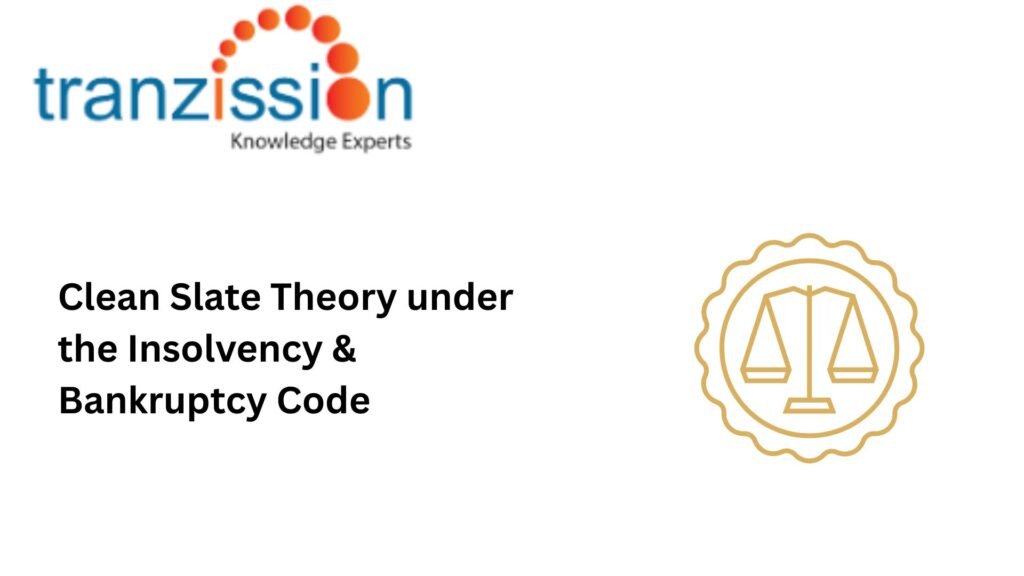Resolving the Conundrum Surrounding Applicability of Moratorium
The primary objective of the Insolvency and Bankruptcy Code, 2016 (“the IBC”) is to resolve the financial issues of the corporate debtor in a timely manner so as to maximise the value of its assets. To do so, once the insolvency process is initiated under the IBC, a “ Applicability of Moratorium” is declared under […]
Settlement Agreements Under the IBC are generally recognised and enforceable. Breaching a settlement agreement can have consequences, and the specific remedies available depend on whether the breach occurred before or after the initiation of the corporate insolvency resolution process (CIRP). This article looks into the status of settlement agreements under the IBC in detail. Legal […]
The National Company Law Appellate Tribunal (NCLAT), Chennai Bench in KK Ropeways Limited v. Billion Smiles Hospitality has significant implications for the Interplay Between Arbitration and Insolvency. The central question addressed by the NCLAT was whether a petition filed under section 9 of the Insolvency and Bankruptcy Code, 2016 (“the IBC”) for the implementation of […]
Competition law and insolvency law are intertwined. Competition law ensures fair market practices during insolvency proceedings, preventing anti-competitive outcomes. Insolvency law prioritises reviving financially distressed companies, while competition law aims to prevent market distortions. This involves scrutinizing resolution plans to ensure they do not lead to anticompetitive arrangements, such as debt settlements or joint ventures, […]
Bankruptcy Code, 2016 (“the IBC”) are distinct laws that can intersect in situations involving benami property transactions within the context of insolvency proceedings. While there is no inherent conflict, the IBC’s moratorium provisions can potentially impact such attachments made under the Tussle with the Benami Act, and the liquidator has the authority to include benami […]
On 17th July, 2023, the Hon’ble Supreme Court delivered its judgment in Paschimanchal Vidyut Vitran Nigam Ltd. v. Raman Ispat Pvt. Ltd., establishing that the Insolvency and Bankruptcy Code, 2016 (“the IBC”) takes precedence over the Electricity Act, 2003 (“the Electricity Act”). This means that secured creditors, including those with claims under the IBC Overrides […]
Section 43 of the Defence under the IBC: Section 43(2) defines a transaction as preferential if it involves the transfer of property or an interest thereof by the corporate debtor for the benefit of a creditor, surety, or guarantor on account of an antecedent financial debt or operational debt, placing them in a more favorable […]
The Insolvency and Bankruptcy Code, 2016 (“the IBC”) aims to facilitate the Admission of Corporate Insolvencyy, and the initiation of the process is intended to be the standard course of action when a default has occurred. The Adjudicating Authority, the National Company Law Tribunal (NCLT) considers various factors when deciding whether to accept or reject […]
The corporate insolvency resolution process (CIRP) has been initiated under the Insolvency and Bankruptcy Code, 2016 (“the IBC”), and numerous resolution plans are invited and deliberated upon before a final plan is selected. The clean slate theory means that once a resolution plan is approved, all pre-existing the corporate debtor are extinguished, thus allowing the […]
Stressed assets refer to loans or debts where the borrower is struggling to repay, potentially leading to non-performing assets (NPAs) and posing risks to the financial system. Rebidding in the resolution process bid for such assets to acquire businesses at discounted valuations or restructure operations for revival. Role of Bidding in CIRP: In the corporate […]

